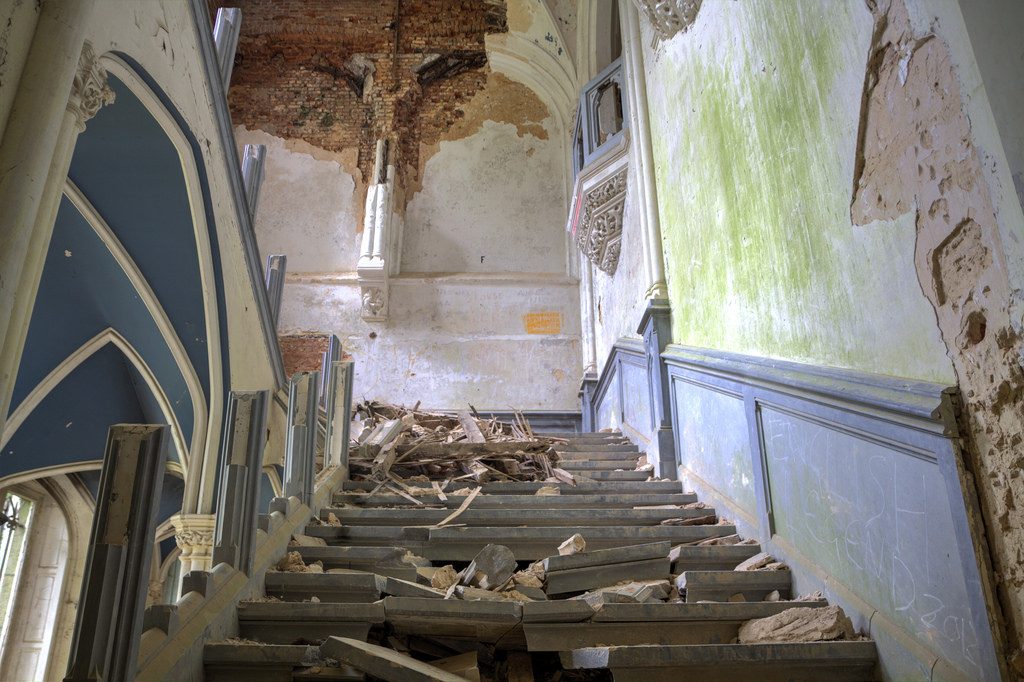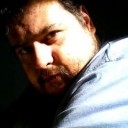Tom Blackwell
By
Patrick Calinescu
An excerpt…
So my Arnoldian, thoroughly un-Claudian walk finally allowed me properly to express my joy, and take it out of its poor disguise—and also to forget, as sometimes I need all this to go away, that my normal way of walking is diametrically opposed to how I “joy-walk” on the rare occasions on which it is necessary for me to do so. But it’s all a mask, an orthopedic mask, pretty much like the orthopedic boots that I wore when I was a child; and this makes me be well aware that it’s nothing but a mask meant every now and then to camouflage my real and abnormally natural way of walking, born of my real physical disability, in a thin, yet resistant film of make-belief. A mask it indeed is, but not one made of irony, but one made of grief and of an eternally deferred wish that it hadn’t been so—that it wouldn’t be so.
The other walking episode that ended up shaping up the future of my life, although not so intricate and malleable when it comes to the actual nature of reality, took place exactly eleven years after the first one, in September of 1998.
Back then I had already failed twice the university entrance examination which, if passed successfully, would have made a college student out of me. So throughout 1998 my father grew ever more anxious that I might actually not be able to become a college student after all, which would have been catastrophic to me and my prospects for a better life. The thing is, as is always the case with my father’s life and my own, that in that same year, when I was supposed to learn more seriously than ever if I really wanted to overcome my physical disability, my mother was also diagnosed with cancer; that happened at the beginning of the year, in February. So all of a sudden, the year during which I had to fight for my right to have superior education turned out to be also the year during which my mother had her own fight, much more important than mine, for the right, this time around, simply to be alive. And in between these two major family battlegrounds, my father had somehow to split himself in two; in two separate persons really, in the flesh and bones of one of which he was expected to remain in order to be able to help me by paying for my tutoring sessions, and in the flesh and bones of the other of which he was expected to remain so as to be able to help my mother while she was hospitalized for her cancer treatment and operation.
With my mother in hospital for almost half a year, which coincided nearly perfectly with the time I had to learn before my exam, to be honest I didn’t really learn as much as I should’ve—as I could’ve. Maybe I had become so detached from everything because I was still quite young so, naturally, I had no experience in life, and no way to know whether or not I had it in me really to make it. So as the weeks turned into months, all the while the date of the exam of my life approaching, one day I told my father, on one of his short breaks from the hospital, that perhaps it would be better for me to quit my dreams of becoming a college student. “This way,” I tried to justify myself to him, in my own childish and totally naive way, “you’ll be saving a lot of money…”
No sooner had I spat the word “money,” than my father told me, very hurriedly, to get into the car. When I asked him why, which is my existential trademark, he told me that he was taking me to the university to register me for the coming examination. When I told him there was still time for it, he simply rejected my implied procrastinating, and less visible, underlying depression, by a resounding no. “We’re going right now;” he insisted, “on my way home I stopped at the university and saw that the registration process had already begun; it began yesterday.”
We got into the car and went to the university so that I might be able to register as a candidate. On the way to the registration office neither one of us said anything. My father was too tired and upset with me to talk, and I was too dejected and mad at life in general to be saying anything at all. Back then I was too young to know anything of chaos’s inner workings.
It is only when we got to the university and stopped for a little while at the little foot, as it were, of the flight of stairs leading into the building proper that my second important and life-altering walk began.
In a last effort to persuade my father not to make me register, I shed two boyish tears and tried to resist him, rather melodramatically by my standards today, as he was already pulling me up the stairs. But he was having none of it; despite his being so tired with all the many nights he had by then lost by my mother’s bedside, my father just kept pulling me up the flight of stairs at the entrance to the main university building, where the registration office also was; and when we got into the main hallway, at the end of which majestically rose the marmoreal main stairs to the first and second floors of the building, my father, for fear I should make a scene, simply wouldn’t let go of my hand, as if we were lovers, not father and son.
So I had to follow his lead, ostentatiously pouting and frowning in a bigger than his upside-down, overall decapitated oval of a face, until once again we reached the little foot of another flight of stairs: the one leading up to the first floor where the registration office was set up. Here I tried to mutiny again, though to no avail. But, in my youthful bitterness, if I had known I had to climb all the rising stairs in front of me, all the way up, which was the only part of my walk that I couldn’t do unassisted, I would have done all my best to make it as hard on my father as possible; so I lingered my temporary stay on each and every step for as long as I could, under the false pretense that, all of a sudden, just now, my inoperable hip joint started to hurt me so vividly that I had no other choice but to rest after each and every little, white-marbled step that I was being pulled up onto. “Besides,” I was trying to wax philosophical, at a time when I really knew nothing about it, “these marble steps are dangerously slippery so you wouldn’t want me to fall down, would you now?”
I know I was undeservedly mean to my father; and I also know, now at least, that, as on every other similar occasion when my general bitterness at why I had to be born like this exploded into another episode of cruelty towards my father, he was simply a saint, sent from the heavens of our common irreligious bookish religion to simply help me and, I now see, even save me from myself. But eighteen years ago, when my father was dragging me up those cold stairs, the full process of which I had tried my best to turn into a true Sisyphus-esque enterprise for him, I was completely ignorant of all his efforts. I simply didn’t care about his efforts. I simply didn’t love him back then. I didn’t have any respect for him as my father, either. I had only recently, for only a very few years, started to not hate him anymore, as I had hated him in my first twenty years of life—as I had, alas, through no fault of his.
Finally, when we got to the first floor leaving behind a monstrous flight of seemingly infinite stairs, even in my blindness I could see my father’s face almost purple with the effort of hoisting me all the way up as if I had been just another block of marble that still had to be built into the whole square colonnade that led us to the very door of the registration office, before it could be said that it was truly complete. I saw his tiredness exude from all the pores of his skin, on his face, on his hands, even on the little chest that was showing through the shirt whose last button had that day remained unused, but did nothing to make him feel better, nor apologized for my brattish, impossible behavior; I just tortured him on my way up, during what is perhaps the most consequential walk in my entire life, as much as I could, and as imaginatively as I could, by inventing a new kind of unimaginable pain in my hip joint for each and every step that through his exertion he made me alight on.
In spite of all this proportional ratio between his love for me and my indifference toward him, and because of my ingrained coldness, I have never been able to tell him how sorry I am for all the stupid things I’ve done just to finally be successful in putting a dent in his love for me.
But this has never happened. And now I like to think that I am closer than ever to telling him all that I’ve written in these unfinished memoirs, especially in this chapter; but both these essential walks of mine that made it out of my collective remembrance pool would then pale in comparison to this particular walk into my father’s very being, wouldn’t it now?



No Comments Yet!
You can be first to comment this post!